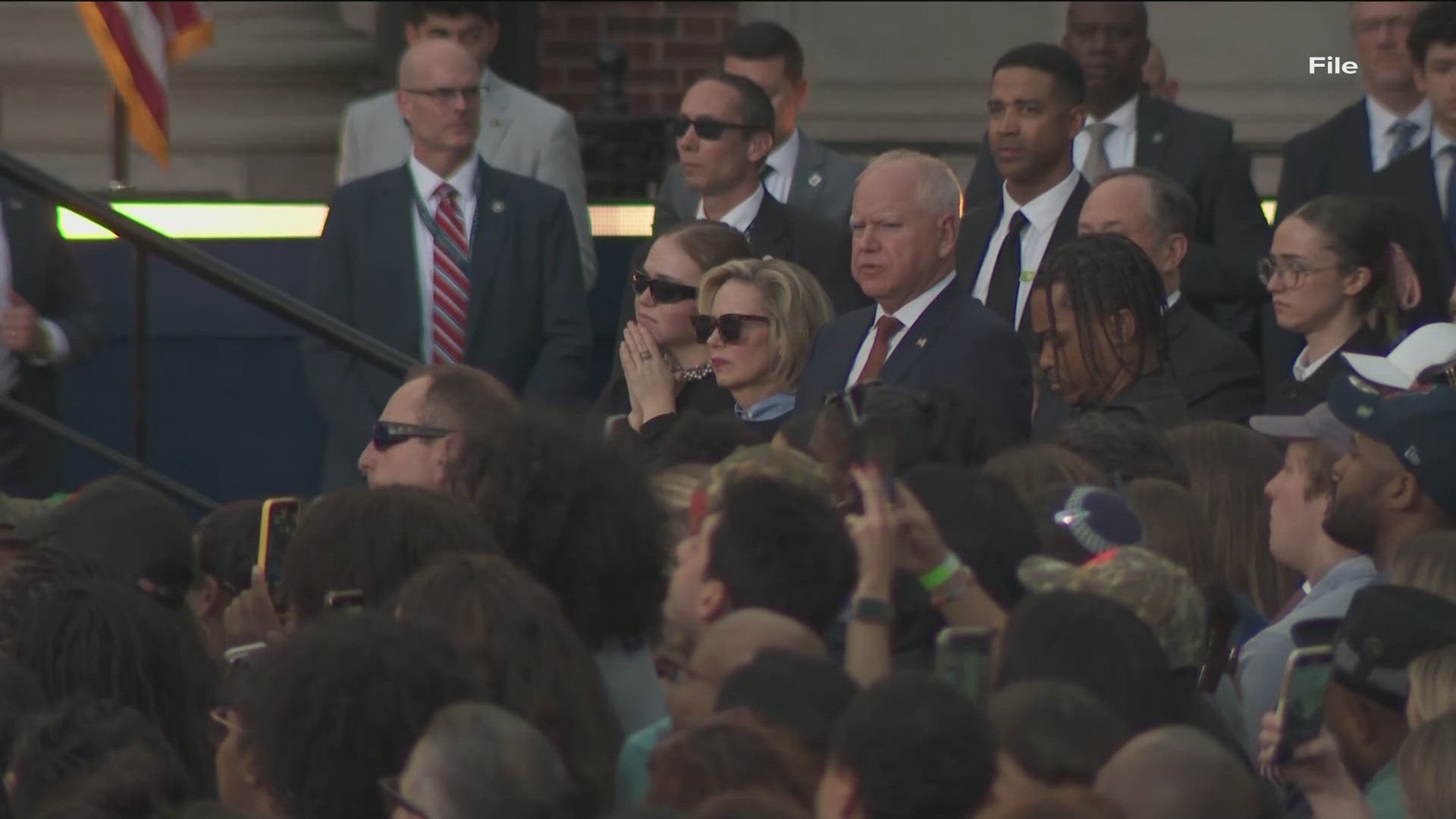MINNEAPOLIS — Challenges await Governor Tim Walz when he returns to Minnesota.
Republicans gained enough seats on election night to possibly tie for control of the Minnesota House, ending the Democrats' trifecta control of the state’s legislature.
“The Republican Party is gaining power, and they will now be a force to deal with,” said University of Minnesota Political Science Professor, Larry Jacobs. “I think Tim Walz has got his hands full."
He said Walz had a hectic summer, rising to the top of the political pyramid before going through a trial by fire during the vice-presidential debate. Jacobs said Walz will now have to regain the trust of both Democrats and Republicans.
“One of Tim Walz’s challenges is going to be to win back trust from DFLers who he may have irritated because of some of the policies he’s advocated for on the national stage, but especially from Republicans who he has gone after on the national stage,” he said. “To be both the No. 1 attack dog against Donald Trump and JD Vance, and then come back to Minnesota and expect Republicans to sit down in good faith and negotiate a deal that would politically help the governor, I think that’s a lot to ask.”
Jacobs expects Walz to get pulled in a couple of directions on the national level as well as what’s happening at home. However, he said Minnesota must be his No. 1 priority.
“Minnesota is only going to work again if we can have dialogue across our differences, and I think that is the theme for Tim Walz moving forward," said Jacobs. "Can you create a dialogue across the differences that define the political parties today?”
Jacobs said it will be key for Walz to work with Republicans to get a budget done to avoid a special session.
“He’s got to find a way in which he can talk and negotiate with Republicans, and I think the first step is talking to Republicans,” Jacobs said. “There’s a lot of scar tissue there from two years in which the DFL, literally, ran over the Republican agenda, ignored Republicans, again and again, passing remarkably extensive spending and programmatic agendas.”
Walz returns to Minnesota with two years left of his gubernatorial term, and Jacobs anticipates it will be a frustrating couple of years for the people who live here.
“We are going to be in a period where the No. 1 agenda for Republicans in practice is to be to stop the DFL,” he said. “The Republicans are going to use their newfound power to deadlock what had been kind of a steam engine of policies, just kind of moving through the Capitol.”
He said both sides will need to compromise because nobody is getting everything they want.
“For Progressives in Minnesota, time's up," Jacobs said. "We are not going to see the big spending packages, dreams of new programs that haven’t been passed, that is not going to happen. For Republicans who were hoping for major new tax cuts or maybe rolling back programs, I don’t think that’s going to happen either, and the DFL-controlled Senate will not agree to that."
Jacobs said a complete deadlock won’t be popular with Minnesotans, so there is some incentive for Republicans to compromise, but not to the extent of tremendous spending that we saw in 2023. He said Democrats will need to find a way to continue their agenda, while not sparking Republican outcry.
He said even though Walz’s political future is uncertain he said one thing is for sure, the gubernatorial race in 2026 starts in January.

